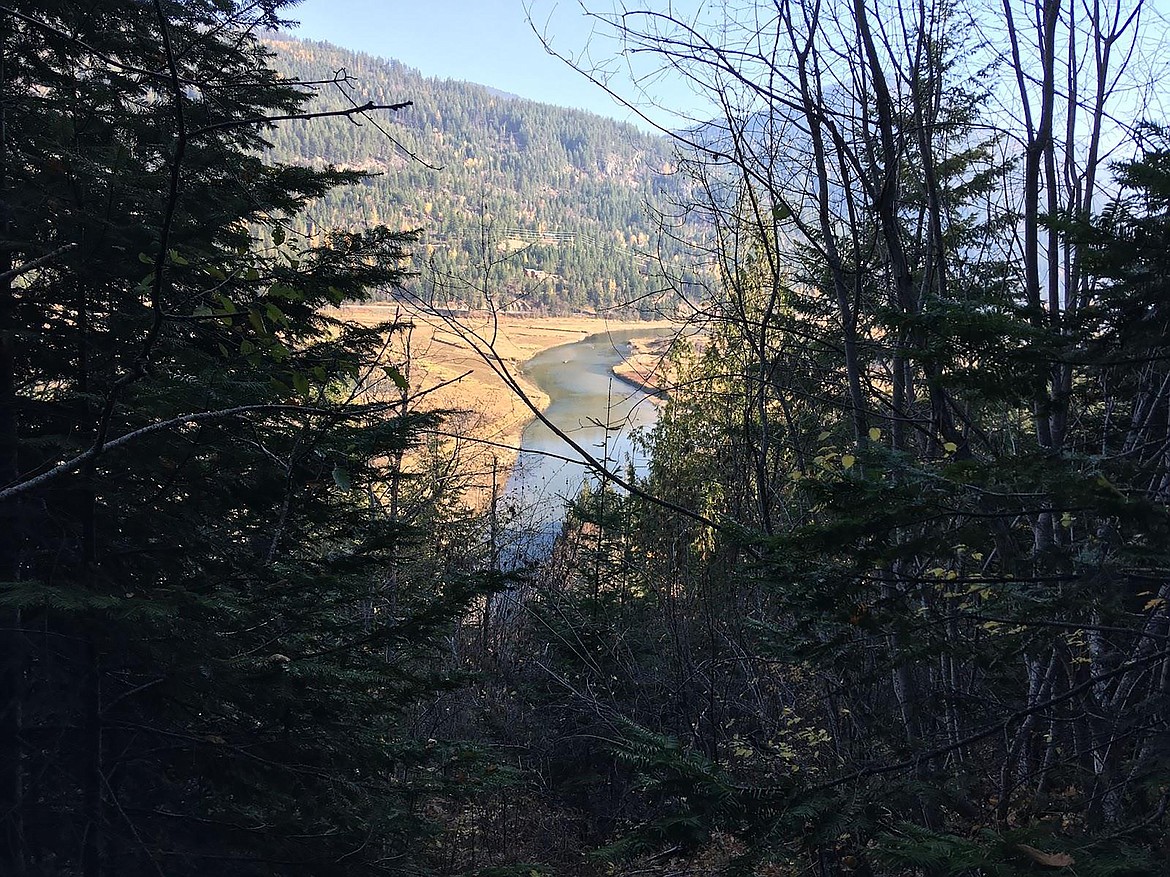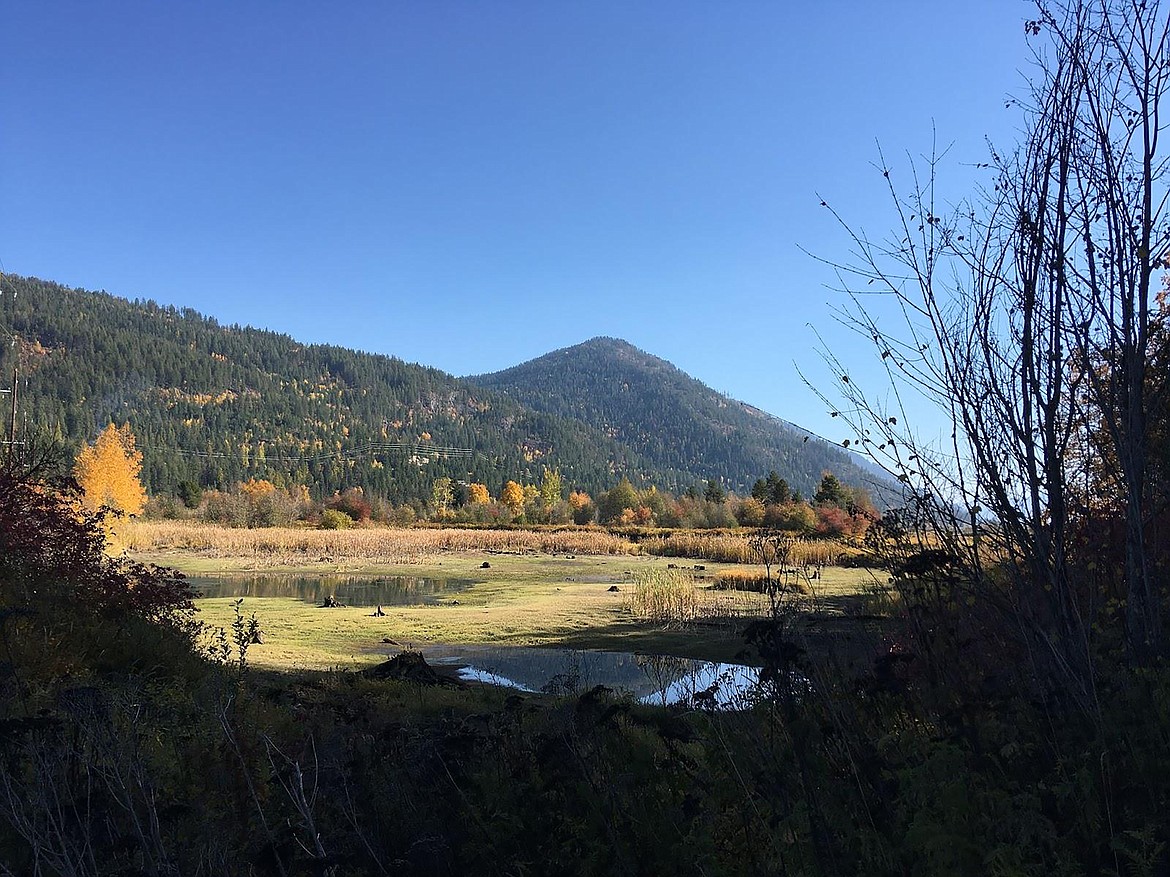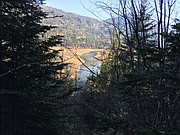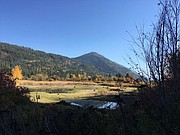Community connection opens the way for land gift
▶️ Listen to this article now.
SANDPOINT — Valiant Idaho didn't plan to develop Moose Mountain. Instead, company officials wanted the 75-acre parcel to remain open and dedicated to natural habitat.
They had, they thought, the perfect idea — donate the land to the Kaniksu Land Trust, figuring the land trust was best positioned to manage the land for conservation.
Land trust officials said no.
They had, they told Valiant officials, a better idea: Return the land to the Kalispel Tribe.
Through many conversations with Ray Entz, Kalispel Tribe's director of wildlife and terrestrial resources, KLT knew the Tribe had been working to revive their canoe culture but was limited by a lack of suitable access points.
Once part of the Tribe's ancestral homeland, the Moose Mountain parcel is located on the west shore of the Pack River Delta. Lying within a wildlife travel corridor and adjacent to an interconnected system of state and federal lands bordering the Pack River, Kaniksu Land Trust officials said the site is significantly valuable from a conservation perspective.
The company had no plans to ever commercially develop the parcel. William Haberman, managing member of Valiant Idaho, said the company wanted to donate the land outright to KLT. Valiant and Haberman reasoned that KLT would be in a better position to manage the land for conservation.
When they were offered the land, KLT officials knew instantly they weren't the right stewards. Since it was once part of the Kalispel Tribe's homeland, it should be returned to the Tribe. There was no one better to care for and protect the land than the Kalispel.
And as important, the site included undeveloped access to Pack River — perfect for the Tribe's plan to reclaim that part of their cultural heritage.
Idaho Club officials loved the idea. On Dec. 27, the Kalispel Tribe reclaimed a portion of their traditional homeland fronting the Pack River Delta by means of this gift from The Idaho Club.
KLT and the Kalispel Tribe officials said the gift is less about a conservation movement and more about the value of meaningful connections.
"There is strength in partnership. We probably wouldn't have even been aware of the potential of this project if not for our relationship with KLT," Entz said.
Entz said the Kalispel Tribe’s interest in the property goes beyond cultural and conservation value. It returns them home.
The gift will help to support development of canoe access and an interpretive site on the Pack River, Entz said. In addition to the Tribe, the general public will benefit from use of this site as well, as it will provide safer access than the current site at the Highway 200 bridge over the Pack River.
“When we look at a potential land acquisition, we look at it for its different values, like habitat and access," Entz said. "We don’t currently have this kind of access. Most access points are shared with a public boat launch, which isn’t ideal for putting in a canoe."
The gift to the Kalispel, and KLT's role in things, is an example of a growing effort by land trusts across the nation to explore ways to restore stewardship and access to culturally significant lands to indigenous tribes. KLT officials said this “land-back” movement is exemplified by projects such as the Esselen Tribe's reclamation of 1,199 acres in Monterey County, California, a 3,200-acre land purchase by the Coquille Indian Tribe in Oregon, and the 640 acres in British Columbia that a rancher gifted back to the Esk'etemc First Nation.
Kaniksu Land Trust officials said their conservation work involves protecting culturally significant lands. Locally, that includes the Kaniksu Region — which refers to the historical range of the Kalispel People. The region extends roughly from Plains, Montana, westward along the Clark Fork River to Lake Pend Oreille in Idaho, and continues along the Pend Oreille River to the border with Washington. This region was given the name “Kaniksu” by the Kalispel People who lived on and cared for it, KLT officials said. The region encompasses parts of present day Bonner and Boundary counties in Idaho, and Sanders County in Montana.
They are honored, said KLT officials to play a role in ensuring the property ended up in the right hands.
"KLT is honored to have served as a facilitator in support of this very meaningful gift. We recognize the value in returning this wild mountainside to its original caretakers," Regan Plumb, KLT’s conservation director, said.
Idaho Club officials agreed.
In approaching the land trust, the idea was to ensure the parcel was protected from encroaching development. It was important, Valiant Idaho officials said to protect the property as an open space, a site dedicated to natural habitat. And while the gift went to someone other than the originally planned at first, The Idaho Club officials and Haberman said they couldn't be more pleased with how things turned out.
There is, they said, a great deal of satisfaction in knowing the land will be valued and cared for — forever.
“We are pleased to have been presented the opportunity to donate a significant portion of The Idaho Club land holdings to the Kalispel Tribe with the professional guidance and encouragement of Kaniksu Land Trust," Haberman said.
What started as a collaboration with Kaniksu Land Trust, resulted in what company officials said is a “best-case” scenario for the property and critical habitat in and around the Pack River Delta.
The parcel is particularly significant from a conservation perspective due to its direct frontage on the Pack River Delta, natural vistas from the Pack River and Lake Pend Oreille and prominent location within the natural habitat of the delta, Haberman said.
"Given our desire to make an impactful donation that permanently benefits the area," he added, "we believe we could not have found a more qualified and motivated permanent steward for this critical habitat than The Kalispel Tribe.”





